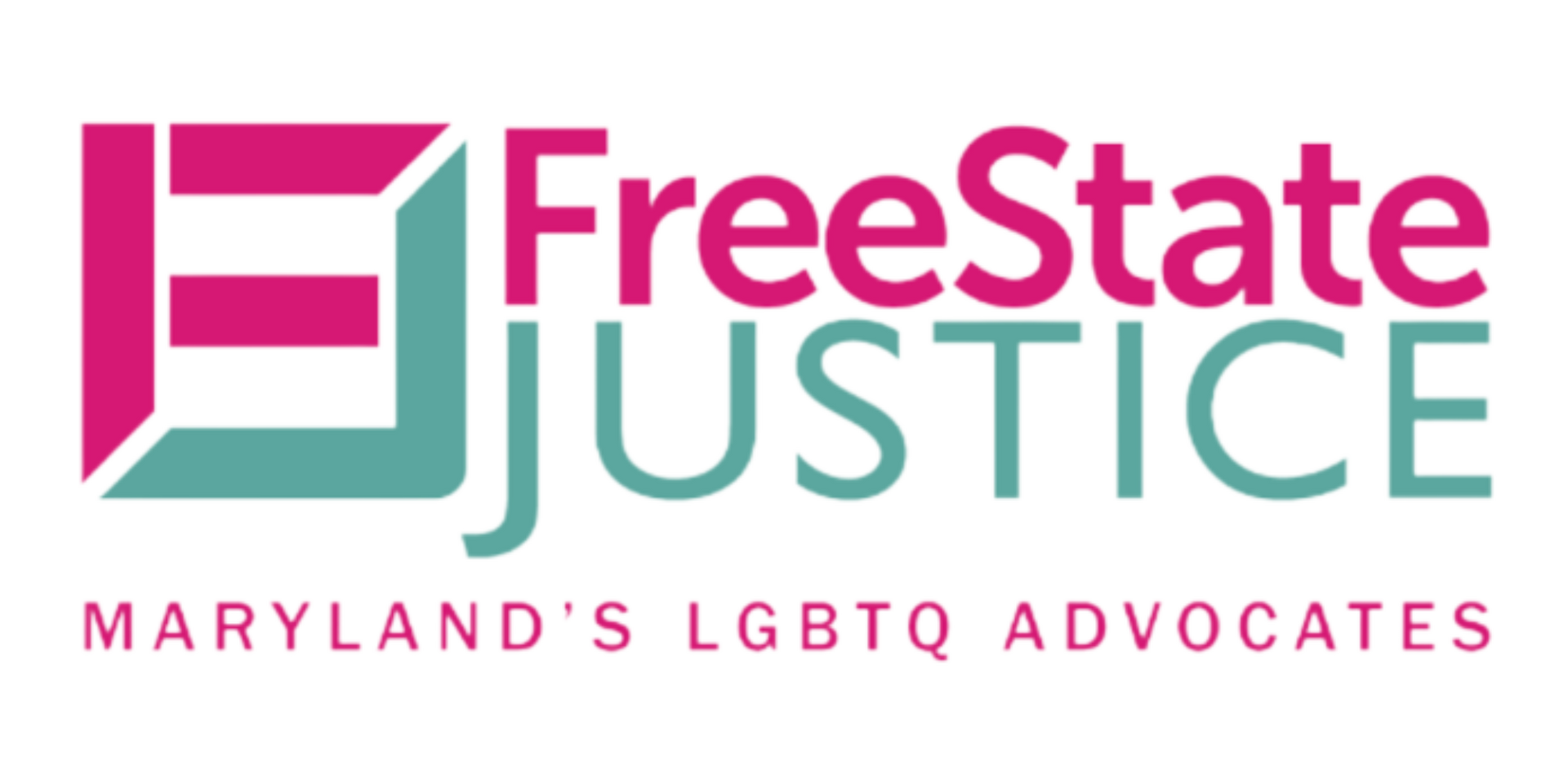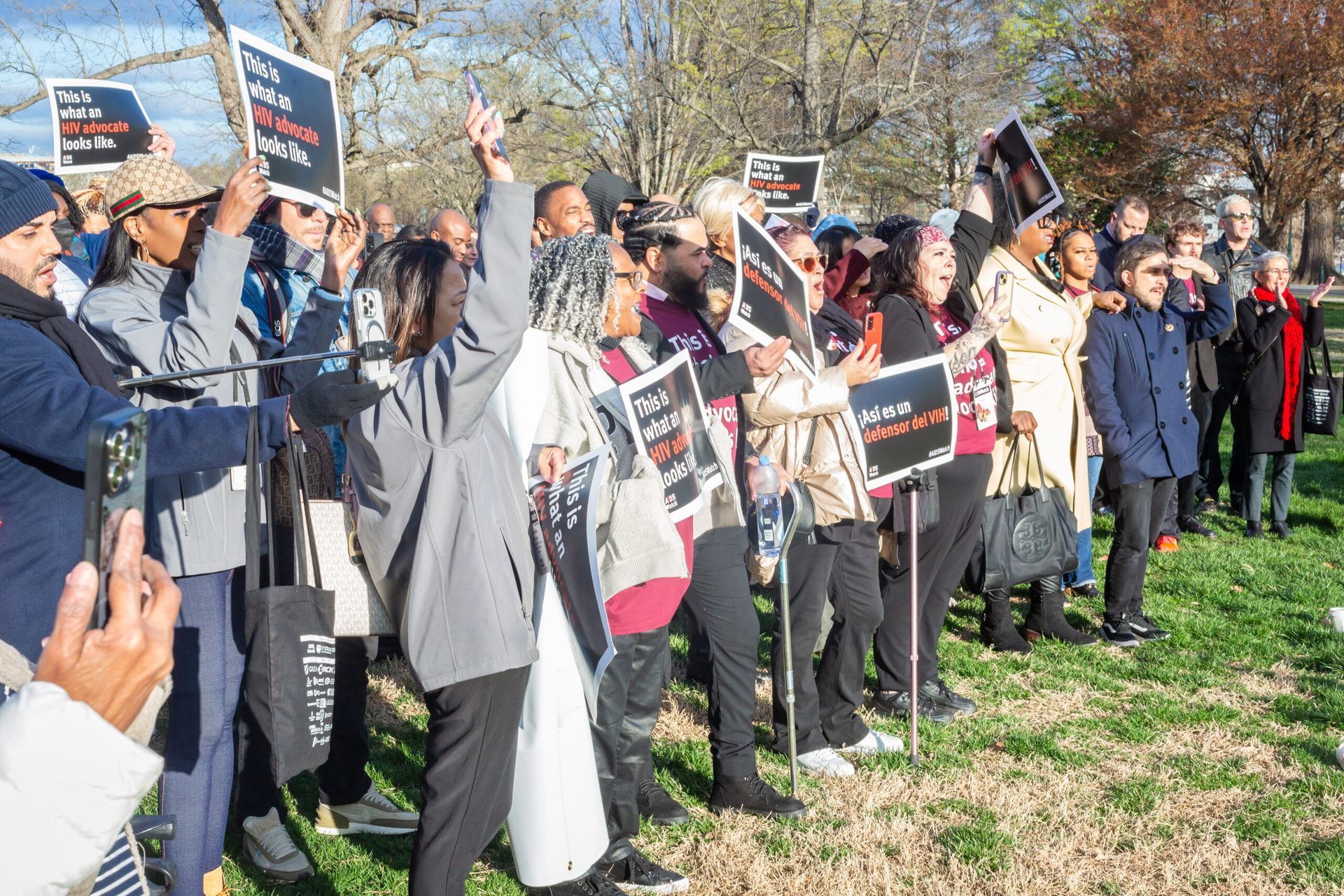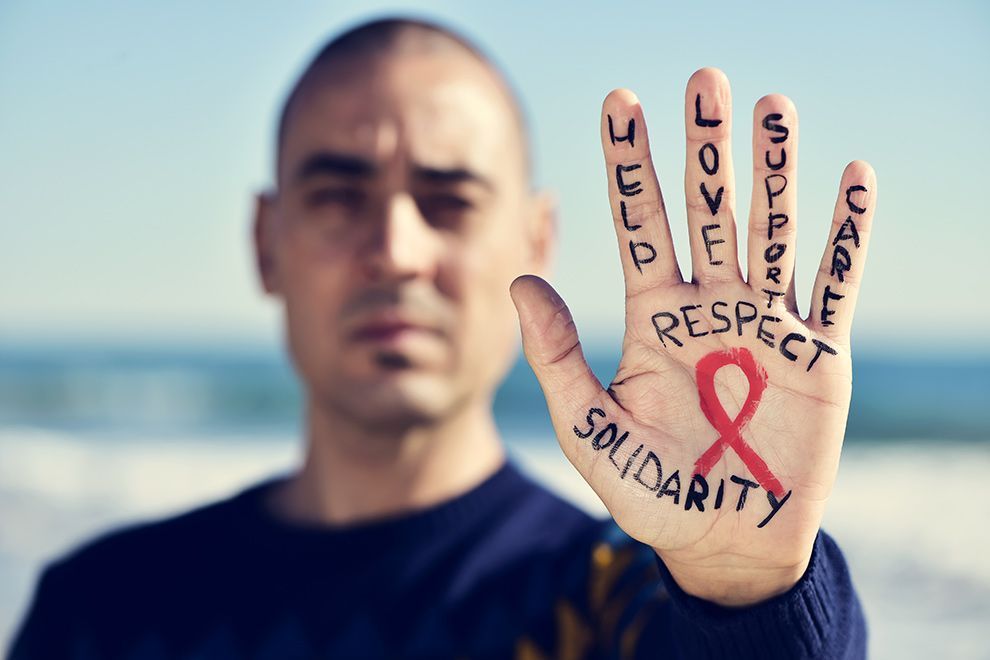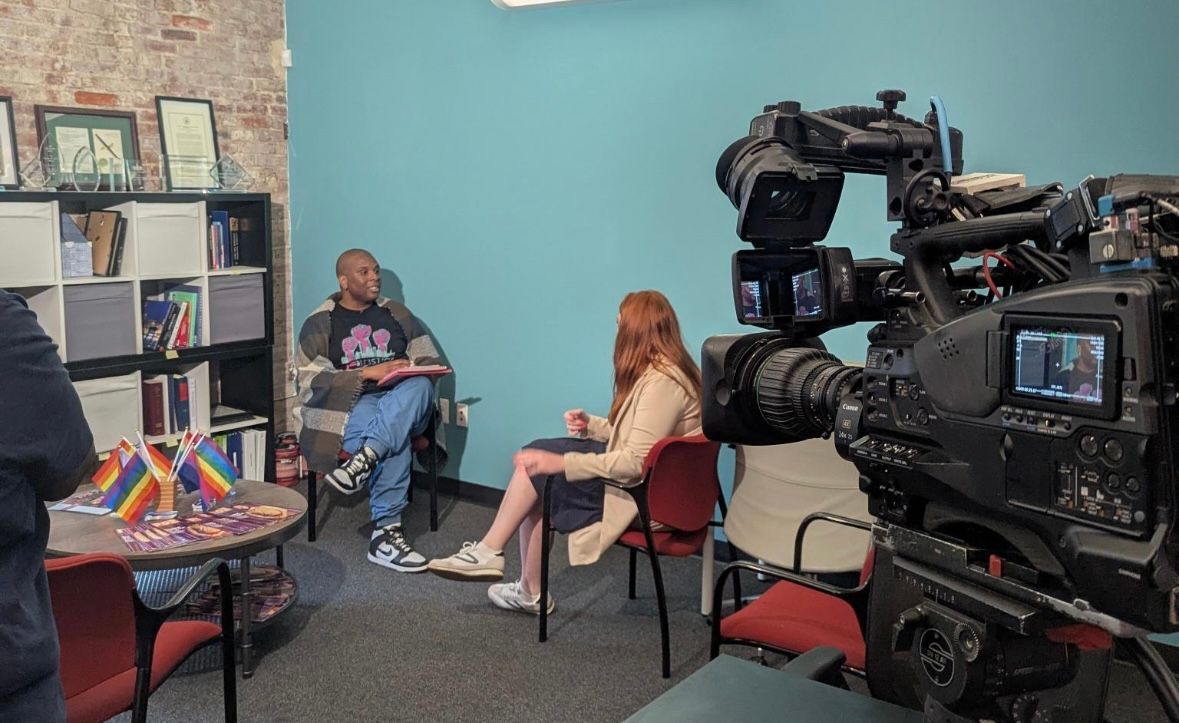MODERNIZING Maryland's HIV LAWS
After years of organizing, advocating, and making lawmakers understand the needs of Maryland's marginalized communities, FreeState Justice was thrilled to help sign the Carlton R Smith Jr. HIV Modernization Act into law.
Through a combination of on-the-ground advocacy, events dedicated to uplifting the voices in this fight, and national coalition building, FreeState Justice pushed this Bill over the finish line, making Maryland a more inclusive state for all.
The Bill was was signed into law on Tuesday, May 20, 2025.
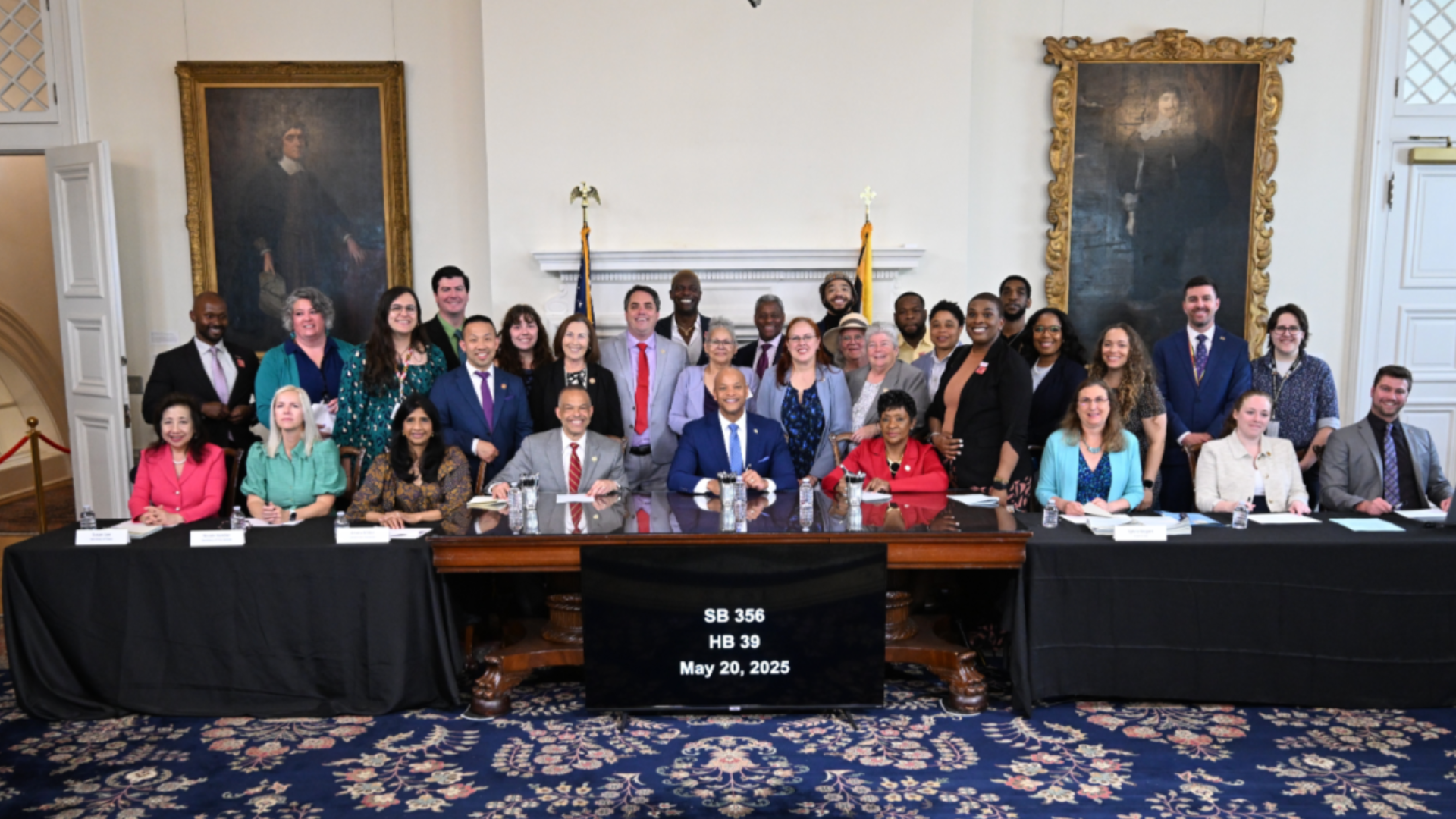
The Carlton R. Smith Jr. Act was passed on May 20th, 2025. What does this mean?
As of October 1, 2025, it is no longer a crime in Maryland to live with HIV.
For decades, Maryland law made it a misdemeanor offense—punishable by up to 3 years in prison—for someone living with HIV to "knowingly transfer or attempt to transfer" the virus to another person. This law was vague, outdated, and never rooted in science. It criminalized status, not intent or actual harm.
The repeal of this law changes that. Here's what it means:
People living with HIV are no longer treated as criminals for their status.
This law targeted people because they had HIV—not because they intended harm, or even caused harm. It treated people living with HIV differently under the law. That ends now.
Fewer barriers to testing, treatment, and disclosure.
Criminalization fuels fear. Many people avoided getting tested or disclosing their status because of the real legal risks. Now, people can take control of their health without fear of being arrested for it.
An end to legal double standards and stigma in courtrooms.
People were being charged—and sometimes convicted—based on outdated science, assumptions, or spite. Prosecutors used HIV status as a weapon. Repealing this law brings the legal system one step closer to fairness and facts.
No more criminal records simply for living with HIV.
A conviction under this law meant more than just jail time—it meant being branded for life. People lost jobs, housing, custody rights, and access to services. Repeal means stopping the cycle of criminalization and poverty that this law helped reinforce.
A message to the nation: HIV is not a crime—stigma is.
Maryland joins a growing number of states rejecting laws that punish people based on outdated fears about HIV. This repeal sends a powerful message: ending the epidemic means ending the shame and blame.
People living with HIV are no longer treated as criminals for their status.
This law targeted people because they had HIV—not because they intended harm, or even caused harm. It treated people living with HIV differently under the law. That ends now.
Fewer barriers to testing, treatment, and disclosure.
Criminalization fuels fear. Many people avoided getting tested or disclosing their status because of the real legal risks. Now, people can take control of their health without fear of being arrested for it.
An end to legal double standards and stigma in courtrooms.
People were being charged—and sometimes convicted—based on outdated science, assumptions, or spite. Prosecutors used HIV status as a weapon. Repealing this law brings the legal system one step closer to fairness and facts.
No more criminal records simply for living with HIV.
A conviction under this law meant more than just jail time—it meant being branded for life. People lost jobs, housing, custody rights, and access to services. Repeal means stopping the cycle of criminalization and poverty that this law helped reinforce.
A message to the nation: HIV is not a crime—stigma is.
Maryland joins a growing number of states rejecting laws that punish people based on outdated fears about HIV. This repeal sends a powerful message: ending the epidemic means ending the shame and blame.
This victory belongs to every advocate, organizer, lawmaker, and person living with HIV who refused to stay silent.
Now, the work continues—to expand access to care, protect privacy, end stigma, and demand justice for those who’ve been harmed by these laws in the past.
People living with HIV are no longer treated as criminals for their status.
This law targeted people because they had HIV—not because they intended harm, or even caused harm. It treated people living with HIV differently under the law. That ends now.
Fewer barriers to testing, treatment, and disclosure.
Criminalization fuels fear. Many people avoided getting tested or disclosing their status because of the real legal risks. Now, people can take control of their health without fear of being arrested for it.
An end to legal double standards and stigma in courtrooms.
People were being charged—and sometimes convicted—based on outdated science, assumptions, or spite. Prosecutors used HIV status as a weapon. Repealing this law brings the legal system one step closer to fairness and facts.
No more criminal records simply for living with HIV.
A conviction under this law meant more than just jail time—it meant being branded for life.
People lost jobs, housing, custody rights, and access to services. Repeal means stopping the cycle of criminalization and poverty that this law helped reinforce.
A message to the nation: HIV is not a crime—stigma is.
Maryland joins a growing number of states rejecting laws that punish people based on outdated fears about HIV. This repeal sends a powerful message: ending the epidemic means ending the shame and blame.
This victory belongs to every advocate, organizer, lawmaker, and person living with HIV who refused to stay silent.
Now, the work continues—to expand access to care, protect privacy, end stigma, and demand justice for those who’ve been harmed by these laws in the past.
On The Radio
This campaign helped us build the momentum to pass the Carlton R. Smith Jr. HIV Modernization Act — a historic win for Maryland and the nation.
Expungement is a legal process that allows people to remove certain charges or cases from their criminal record. You can learn about how FreeState Justice assists with expungements here.
Our Legal Director and Community Impact Director are actively working together to identify individuals who were criminalized under the old statute. We will provide updates on the process for record expungement as soon as they are available.
BUT THE FIGHT ISN'T OVER
In the Legislature
FreeState Justice and Maryland's HIV Decriminalization Coalition were elated to pass the Carlton R. Smith Jr. HIV Modernization Act — but the work is far from over. Building on this legislative victory, we are moving forward with plans to expand PrEP access and coverage statewide, an effort we began laying the groundwork for last year.
Access to PrEP and PEP is essential in lowering HIV-contraction rates in the U.S. and advancing the medical equity of marginalized communities today. Recent judicial decisions like Kennedy v. Braidwood Management secured expanded access to PrEP and PEP for some, but there are still countless barriers blocking people from these life-saving medications. FreeState's goal is to remove these barriers and expand access in this state, providing a model for how advocates throughout the country can do the same.
What is PrEP?
PrEP stands for pre-exposure prophylaxis. It is for people who don't already have HIV but are at risk of getting it. PrEP is medicine that can reduce this risk. It can either be a pill that you take every day or an injection that you get every two months. With PrEP, if you do get exposed to HIV, the medicine can stop HIV from taking hold and spreading throughout your body.
What is PEP?
Describe the item or answer the question so that site visitors who are interested get more information. You can emphasize this text with bullets, italics or bold, and add links.
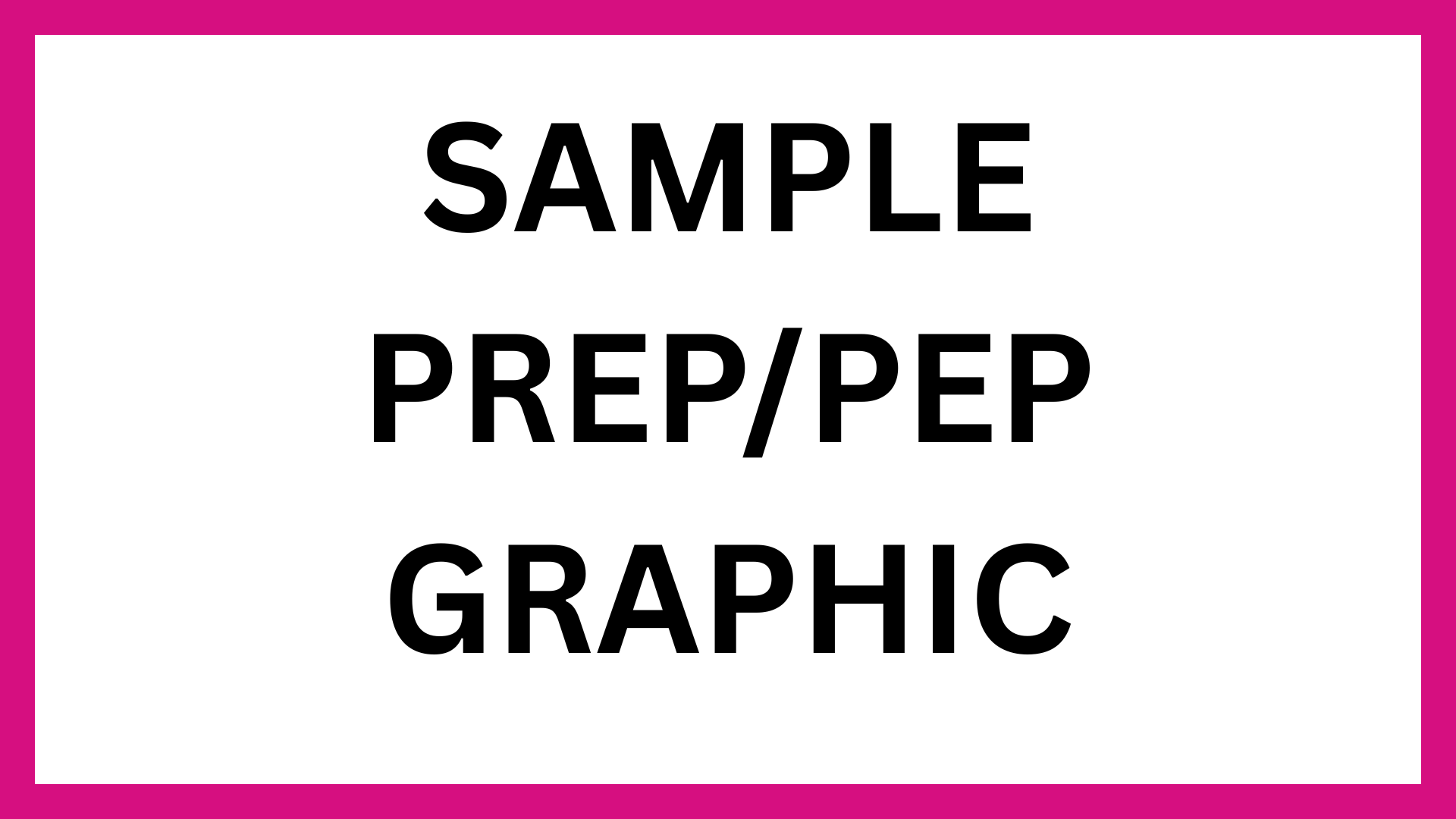
Want to help us fight for the rights of marylanders?
FreeState Justice leads Maryland's HIV Decriminalization Coalition in. It is made up of people living with HIV, HIV service providers, and advocates interested in expanding PrEP/PEP access in Maryland.
We're Here To Help You Do This Too!
We are developing a HIV Modernization Toolkit to help advocates, attorneys, and community organizers replicate Maryland’s success in other states. The toolkit will launch later this year.
